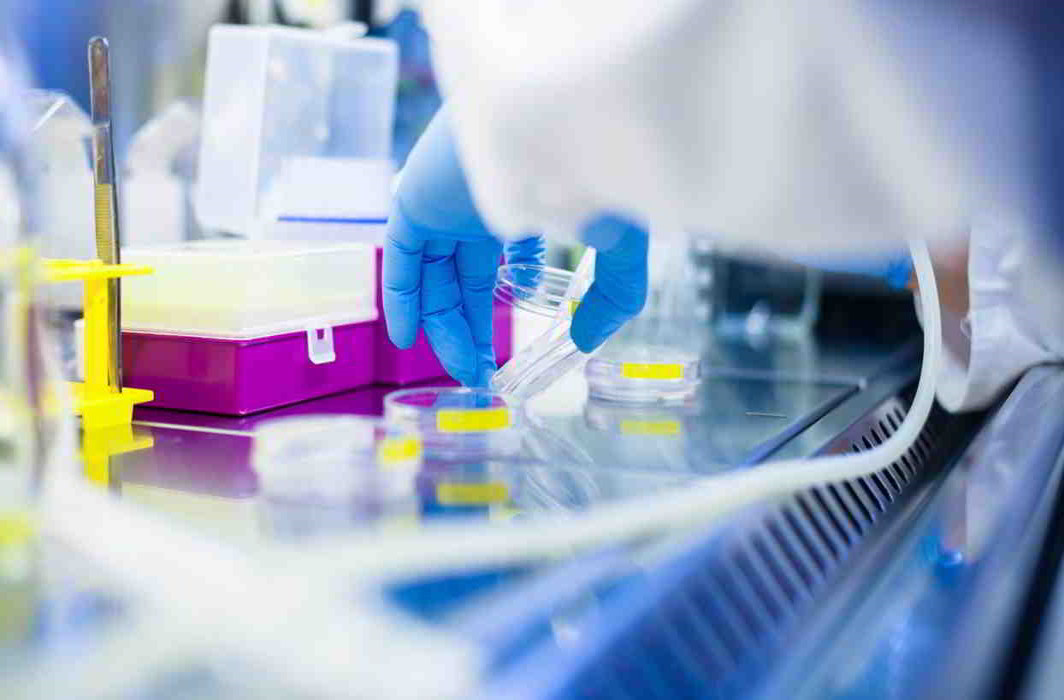By Dr. TV Venkateswaran and Jyoti Singh
Researchers at the National Institute of Immunology (NII) have identified a tumour antigen that promises to be a potent weapon in combating cervical cancer
New Delhi: Cancer of the uterine cervix, also known as cervical cancer, is the second leading cause of cancer deaths among women in India. Almost one lakh women fall victim to the insidious disease every year in the country.
Researchers at the New Delhi-based National Institute of Immunology (NII) are in the process of fine tuning a solution that promises to add a highly potent weapon to the armoury against this type of cancer. They have extracted and identified a tumour antigen which seems to hold a lot of promise. The antigen has been named SPAG9.
“The tumor antigen, which is expressed in reproductive tract cancers and a variety of malignancies, has proved successful in phase I trials. This means it has been proved to be safe on human subjects. Phase II clinical trials are presently underway to gauge its efficacy. We hope to get positive results by next year,” said Dr Anil Kumar Suri, NII director, in an interview.
The therapeutic vaccine based on the antigen is being tested among 54 patients at Cancer Institute (WIA) at Adyar in Chennai. The trials are being conducted by a team of oncologist led by Dr T. Rajkumar. If proven efficacious, it could change the face of cervix cancer treatment. The human trials are being conducted subsequent to elaborate trials with animal models.
Invasion of foreign bodies like bacteria or virus usually trigger a volley of fighter cells called T cells. These T cells surround germs and fight them. Each type of virus or bacteria requires specific antigen T cells. Vaccination primes the body to potential threats and keeps the arsenal of antigens ever ready to fight an invasion.
However, this cannot happen with cancer. Even though they are rogue elements, cancer cells are after all from within the affected persons themselves. Body’s immune system cannot normally recognize them as a ‘threat’. They, therefore, allow them to proliferate and spread all around the body.
Immunotherapy is a new approach that exploits body’s inner capability to put up a fight against cancer. Under the approach, either immune system is given a boost or the T cells are “trained’’ to identify recalcitrant cancer cells and kill them.
The NII scientists are using this strategy to develop the new weapon against cancer of the cervix. “We take cells called monocytes from the patient’s blood and modify them into what are called dendritic cells. These cells have efficient antigens to stimulate the ‘fighter’ cells, or T-cells, in the body. They are then primed with the tumour antigen SPAG9, for ten days, and given back to the patients in the form of a vaccine. The ‘educated’ T cells are able to discriminate the cancer cells and put up a fight against them,” explained Dr Suri.
Poor health, malnutrition, unhygienic environment are the main cause of Human papillomavirus (HPV) infection that leads to cervical cancer. Normally our body has tumor suppressor genes and proteins which are able to suppress formation of tumours. The cells in a tumour multiply uncontrollably with hardly any cell death.
NII has outsourced the manufacture of recombinant SPAG9 to Syngene International (Biocon Limited), Bangalore. “If the trials succeed, it will be the first molecule identified in India and will be an example of translational research outcome. Our findings have opened new avenues for novel treatment modalities in battling the deadly disease of cancer worldwide,” said Dr Suri.
Dr. Suri graduated from Hans Raj College, Delhi University and after that did his post-graduation and doctorate from National Dairy Research Institute at Karnal. Subsequently, he did his post- doctorate from Laboratoire pour le contrôle des Reproducteurs, Maisons-Alfort, France. He returned to India in 1985 and joined NII as a scientist.
The thrust of his research is on early detection and diagnosis of cancer and development of targeted approaches for therapeutic interventions for cancer medicine.
Dr Suri has authored 63 high impact publications in reputed international journal and has 15 patents on novel immunotherapeutic method for cancer treatment and diagnosis in India and abroad. He has won the S.S. Guraya Memorial Award, Dr T C Anand Kumar Memorial Oration Award and Rabindra Nath Chakravarti Citation Award.
(This article is from a syndicated feed provided by the India Science Wire)


 India News16 hours ago
India News16 hours ago
 Latest world news16 hours ago
Latest world news16 hours ago
 Latest world news2 hours ago
Latest world news2 hours ago
 Latest world news1 hour ago
Latest world news1 hour ago
 India News1 hour ago
India News1 hour ago
 Latest world news56 mins ago
Latest world news56 mins ago
 India News42 mins ago
India News42 mins ago















